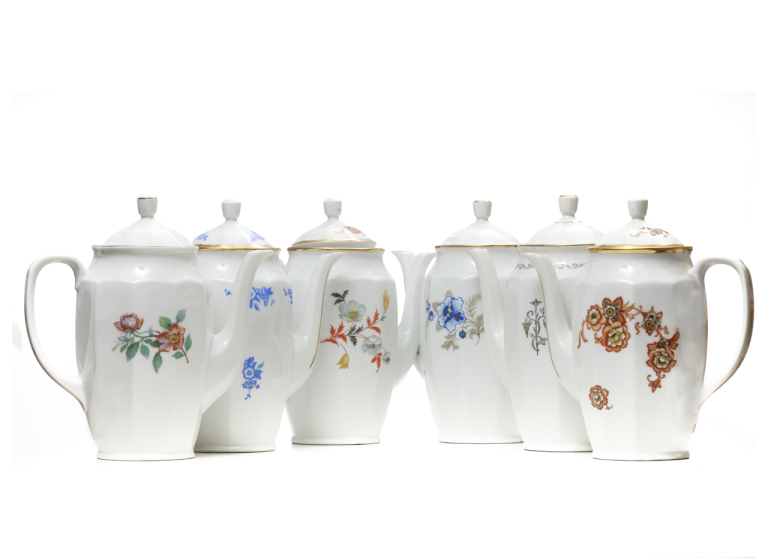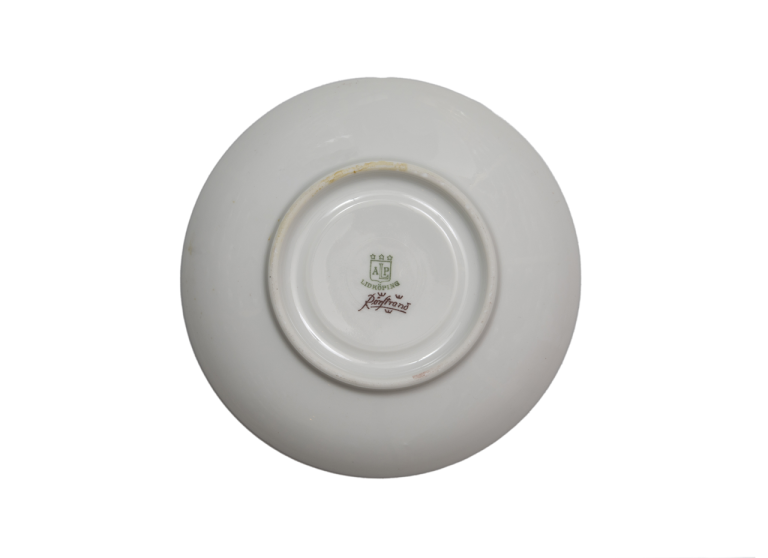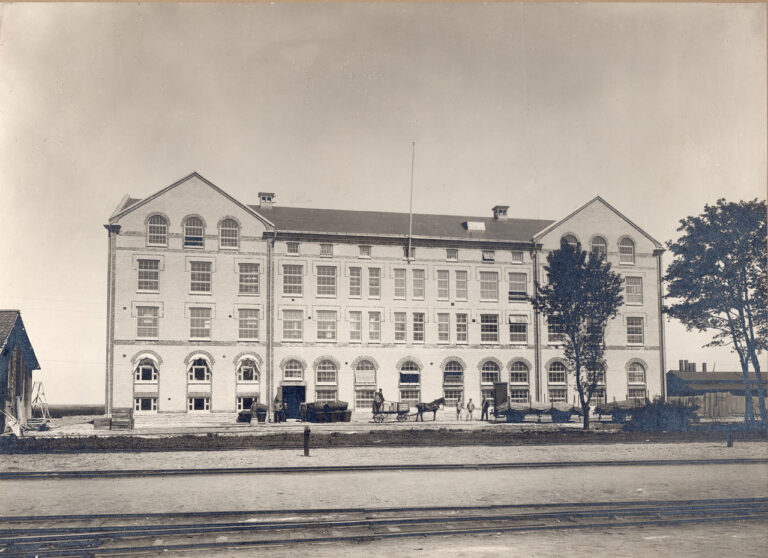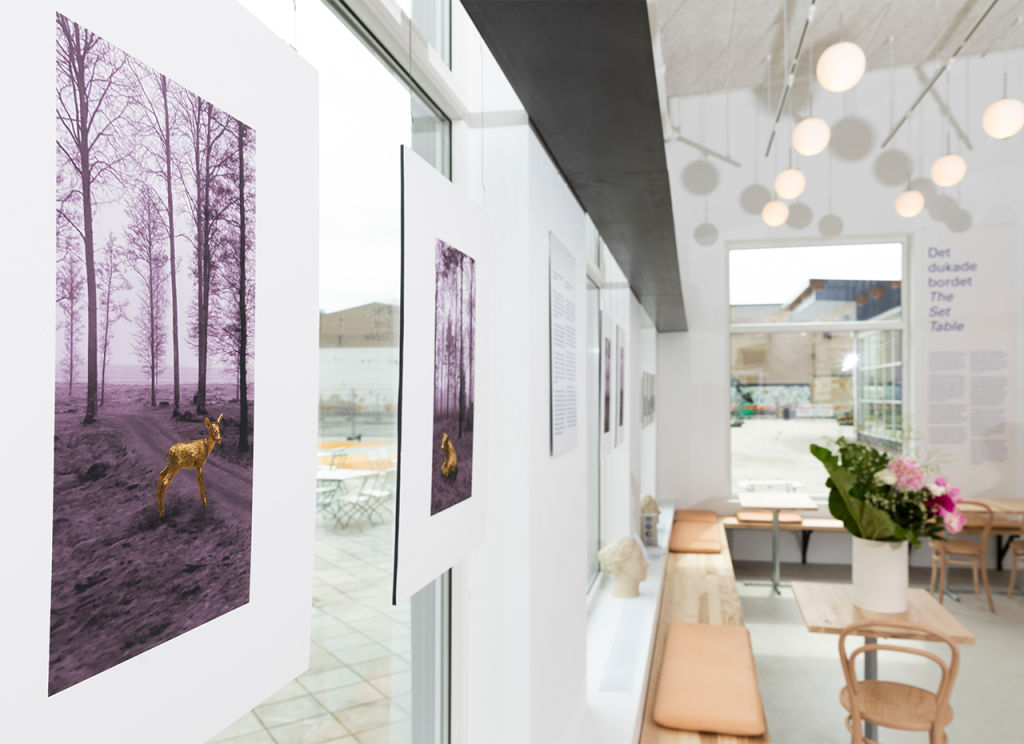


ALP LIDKÖPING
Lidköpings Porslinsfabrik was founded in Örebro in 1892 as P. A. Nymans grosshandel och porslinsmåleri (wholesalers and porcelain painters). In 1900 it was established in Lidköping as Nymans Handels- och Porslinsmåleri AB, for the decoration of imported clay bodies, mainly from Bavaria (Rosenthal). In 1911 the company became AB Lidköpings Porslinsfabrik (ALP), and subsequently built its own factory premises and several kilns.
From 1912, when the first firing took place, production was mainly of feldspar porcelain tableware. The company was managed by Per R. Nyman (1870-1945) and the decorating department was run by Carl-Fredrik Hartung, both at Nymans and later at ALP. Carl-Fredrik Hartung himself was said to have painted vases at Nymans. In 1912 the number of employees was around 180 people, of which eight were women painters who had come from the Nymans porcelain painting factory.

ALP coffee set in feldspar porcelain. Photo: From the archive.
Production at ALP included household goods, primarily tea and coffee services but also decorative items in the Rörstrand style. One of the leading artistic collaborators was Algot Eriksson, brought over from Rörstrand, who designed several collections from 1912-1917 in line with the ones he had produced at Rörstrand.
Problems with the import of clay meant that the factory needed a daughter company in Germany from 1918-23, which supplied both kaolin and ready made plain porcelain blanks. From around 1925 the company started making their own models and decorating them. Several artistic talents were employed, including Einar Forseth, Knut Hallgren and Oscar Dahl
There had already been some collaboration with Rörstrand from the beginning of the 1920s. From 1929, when Rörstrand was bought by Iföverken and Arabia, alongside Lidköpings Porslinsfabrik, this was intensified. In 1931 Rörstrand became a free standing company again and in 1932 a merger took place with Lidköpings Porslinsfabrik. Between 1936-39 the whole of Rörstrand’s production was gradually moved over to Lidköping. ALP still existed for some years into the 1940s under its own name, in parallell with Rörstrand, but after 1943 the business was continued under the brand name Rörstrand.
